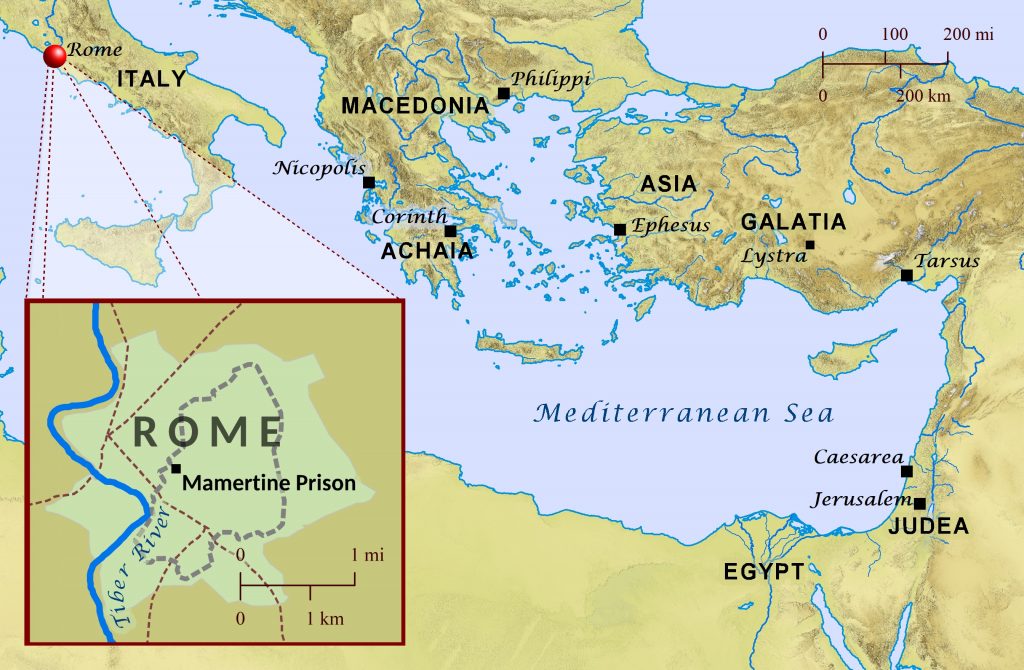Readers’ Version
Literal Version
22:30 Paul faces the Jewish council
30 The next day, the Roman commander still wanted to know what was behind the anger of the Jews, so he had Paul released from the cell, but brought him down to a room where he’d ordered the chief priests and the Jewish council to convene. Paul was given a seat
23 and looking directly at the council members said, “Men, brothers, all my life I have lived before God as a good citizen and with a clean conscience.” 2 But Ananias the chief priest commanded one of his companions to whack Paul on the mouth. 3 “God will strike you,” said Paul, “you grand show-off. You’ve been brought here to judge me as someone who knows the law and yet you violate the law by commanding that I be hit in the face.”
4 But the others standing there said, “Are you insulting God’s chief priest?”
5 “Brothers,” said Paul, “I didn’t realise that he’s the chief priest, because the scriptures teach us not to speak wrongly of our leaders.”
6 But then, knowing that the council consisted of some from the sect of the Sadducees and some from the Pharisees’ party, Paul continued loudly, “Men, brothers, like my father, I’m a member of the Pharisees and I’m being tried today concerning the hope and the resurrection of the dead!”
7 Well, as soon as he said this, the council was split as the Pharisees and the Sadducees started arguing. 8 (Sadducees say that the dead don’t come back to life, and there’s no messengers and no spirits, but the Pharisees believe there is.) 9 So then there was a big kerfuffle because some of the teachers of the law spoke up for the Pharisees saying, “We don’t see anything wrong with this man. Maybe it was a spirit or one of God’s messengers that spoke to him.”
10 But the Roman commander was afraid that they might tear Paul apart in the big argument, so he called for his soldiers to come down to uplift Paul and return him to the barracks.
11 The following night, the master appeared to Paul and told him, “Be brave because just like you testified about me here in Yerushalem, so too you’ll tell them about me in Rome.”
23 And the Paulos having_looked_intently at_the council said:
Men, brothers, I in_all conscience have_lived_as_citizen good to_ the _god until this the day.
2 And Ananias the chief_priest commanded to_the ones having_stood_by him, to_be_striking the mouth of_him.
3 Then the Paulos said to him:
- god is_going to_be_striking you, wall having_been_whitewashed.
And are_ you _sitting judging me according_to the law, and you_are_ violating_law _commanding me to_be_being_struck?
4 But the ones having_stood_by said:
Are_you_insulting the chief_priest of_ the _god?
5 And the Paulos was_saying:
I_had_ not _known, brothers, that he_is a_chief_priest, because/for it_has_been_written, that you_˓will˒_ not _be_speaking wrongly A_ruler of_the people of_you.
6 But the Paulos having_known that the one part is of_Saddoukaios_sect, but the the_other of_Farisaios_party, he_was_crying_out in the council:
Men, brothers, I am a_Farisaios_party_member, the_son of_Farisaios_party, I am_being_judged concerning the_hope and resurrection of_the_dead.
7 And of_him speaking this, a_dissension became between_the Farisaios_party and Saddoukaios_sect, and the multitude was_divided.
8 For/Because indeed the_Saddoukaios_sect are_saying to_be no resurrection, neither an_messenger, nor a_spirit, But the_Farisaios_party are_confessing which both.
9 And a_ great _clamour became, and some of_the scribes of_the side of_the Farisaios_party having_stood_up, they_were_contending saying:
We_are_finding nothing evil in the this man, and what if a_spirit spoke to_him, or an_messenger?
10 And becoming great, dissension, the commander having_been_afraid lest the Paulos may_be_torn_apart by them, commanded the army having_come_down, to_snatch him from midst of_them, and to_be_bringing him into the barracks.
11 But on_the following night, the master having_approached to_him, said:
Be_having_courage, because/for as you_testified the things about me at Hierousalaʸm/(Yərūshālayim), thus it_is_fitting you to_testify also at Ɽōmaʸ.

